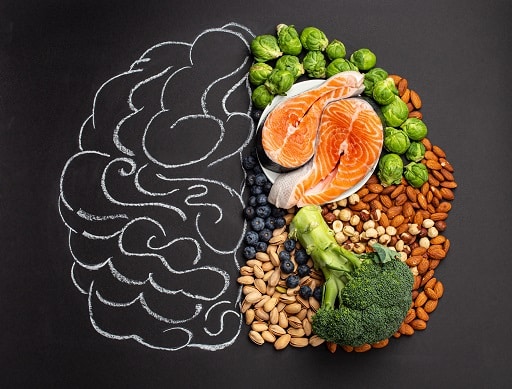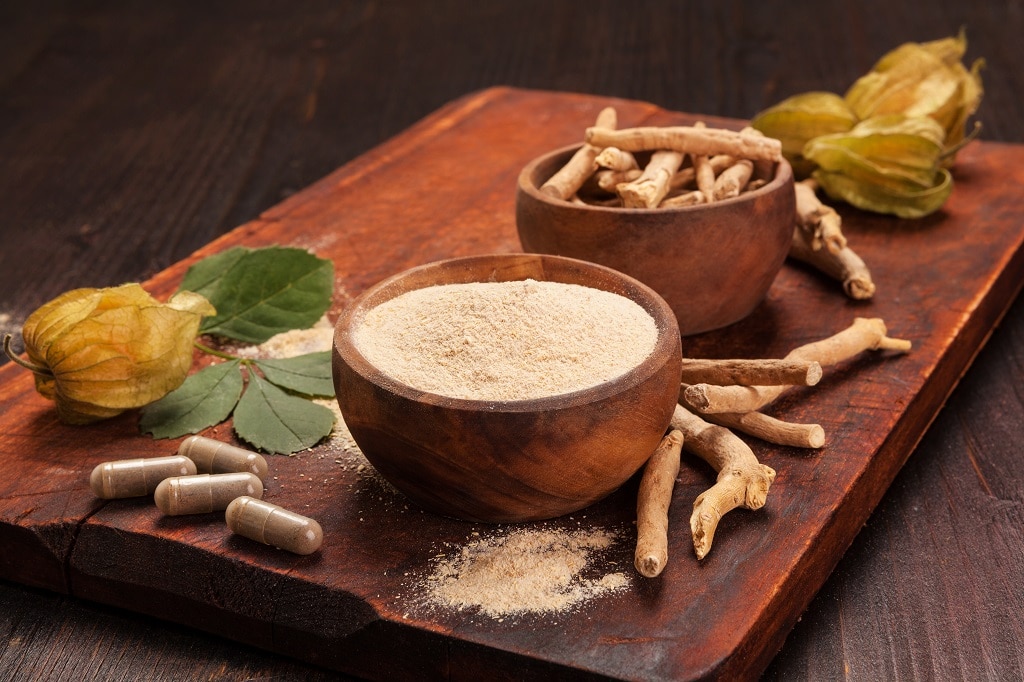
10 Foods That Help Fight Fatigue
We are big fans of the “eat the rainbow” approach to healthy eating. The colorful fruits, vegetables and legumes that are part of this group
Did you know that every time you have a meal, your body produces a quick inflammatory response similar to the one against infection? Inflammation is part of your immune system response. It’s one of your body’s first lines of defense against an invading force. Inflammation is designed to protect you against infection and facilitate healing.
But when inflammation is chronic and long-lasting, it can wreak havoc on the body. The foods you eat have a big impact on inflammation in the body. Read on to learn 25 of the worst inflammatory foods to avoid in your diet.
Inflammation signals your immune system that there’s a problem and it’s time to act. You need a little inflammation in your life to fight a fever or heal from a wound.
On the other hand, chronic inflammation is ongoing and can damage your cells, tissues, and organs. When you experience chronic inflammation, your body’s inflammatory response doesn’t switch off. Research shows that chronic inflammation leads to several diseases like:
An anti-inflammatory diet focuses on eating foods that reduce inflammation while avoiding or reducing inflammatory foods. While there is no miracle food cure for chronic inflammation, an anti-inflammatory diet and lifestyle help your body operate at the proper levels.
Some foods contain ingredients that trigger inflammation and increase oxidative stress. So, what you eat does significantly impact your health. Research suggests that a diet low in refined carbs, high in soluble fiber, and mono-unsaturated fatty acids, all have an anti-inflammatory effect.
Compare this to the Standard American Diet, where three out of four Americans don’t eat a single piece of fruit in a day. By understanding more about how certain foods increase or decrease inflammation, you can adapt your diet to support your overall health and may even prevent the development of certain diseases.
Chronic inflammation can throw off your hunger hormones and stand in the way of weight loss. People with long-term inflammation may also experience fatigue and gut issues.
When it comes to the worst inflammatory foods to avoid, you will likely not be entirely surprised by this list. This list contains eight groups with 25 inflammation-causing foods. While it’s not realistic to upend your diet overnight, building your awareness around anti-inflammatory foods can help you adapt your lifestyle.
The world of sugars is complex, so what better place to start. Sugary drinks can cause a spike in inflammation. On average, a soda can contains more than 16 teaspoons of sugar, which is more than 64 grams of sugar.
One study found that having a 50-gram dose of fructose causes a spike in inflammatory markers. This spike remains high for more than two hours.
Punches or fruit punch can be misleading as it sounds at least a little bit healthy. While sugary drinks are an obvious one, sometimes inflammatory foods are pretending to be healthy. The problem with punches is that they’re artificially flavored and contain a lot of sugar.
Added sugar is the sugar manufacturers add to make foods sweeter. Not only can added sugar increase chronic inflammation, but it also raises blood pressure. Both of which are risk factors for heart disease.
Fruit juices are a concentrated source of sugar. It’s easy to think of fruit juice as a healthier option than soda. But it may surprise you that both drinks can pack a similar sugar punch. So, both drinks may lead to weight gain.
If you’re trying to cut down on sugar, fruit juice can add a surprisingly large amount to your diet. Instead, try including fruit-infused water into your diet for a sweet treat.
It’s no surprise that candy is one of the worst inflammatory foods to avoid. Not only does it contain added sugar, but additives and artificial flavorings too. Candy is high in added sugar and refined carbohydrates.
Following a diet high in fructose corn syrup may increase inflammation. While candy is an obvious one, there are other sneaky sources of added sugar like granola bars, salad dressing, and condiments.
Pastries are another source of sugar that can cause inflammation. When you eat sugary foods like pastries, your body can’t process all that sugar quickly enough, increasing inflammatory markers.
Studies also show that spikes in your sugar intake can suppress the immune system. So, when you eat too much sugar, it could make it more difficult to fight off infection and illness.
Desserts are often full of sugar. What’s annoying about desserts is that they often contain a lot of sugar for a relatively small portion. Some of the worst inflammatory-causing desserts include cookie dough, chocolate chip ice cream, and sweets pies.
If you’re looking for an anti-inflammatory dessert, opt for low-sugar choices with nutritious ingredients. Eat sweet treats in moderation.
For all those snackers out there, you are not alone. It can feel like some sweet snacks are a healthy alternative, but they can be very misleading. Some of the worst sweet snacks for inflammation include:
One study found that eating 50 grams of white bread increased inflammatory markers in healthy participants. They also had higher blood sugar levels. White bread uses highly processed flour and additives; it’s also low in protein and fiber. It’s this combination that can result in erratic blood sugar levels.
Cooking oils continue to get a lot of attention as people decipher between “good” and “bad” oils. As the name suggests, cottonseed oil uses the seeds of the cotton plant. It belongs to the same family as canola oil and soybean oil.
Cottonseed oil goes through a refining process to remove a toxin found in cotton seeds. Like a lot of oils, cottonseed oil is high in omega-6 fatty acids and low in omega-3, which can result in inflammation.
Polyunsaturated fats are types of healthy fats that include omega-6 and omega-3. Studies show that foods with higher omega-6 fatty acids may increase inflammation. So, oils that have a higher ratio of omega-6 to omega-3 are not a great choice.
Grapeseed oil is high in omega-6 fatty acids and calories. This means it may increase inflammation and contribute to weight gain when consuming larger amounts.
Vegetable oils tend to be inflammatory, and safflower oil is no exception. The safflower plant is a bright thistle-like flower. You press safflower to extract the oil. The oil is processed to deliver a neutral-tasting oil.
Corn oil is a refined vegetable oil commonly used in cooking, especially deep-frying. While corn oil can contain healthy elements, overall, it’s not a healthy fat. Many baked goods often use corn oil.
Sunflower oil has a neutral flavor, so it won’t overwhelm a meal. But it’s high in omega-6 fatty acids, which may increase inflammation. The oil can withstand high temperatures, so it’s suitable for cooking. However, in general, it’s not the best choice for an anti-inflammatory diet.
If you need to use a cooking oil, the best oils to reduce inflammation are those high in omega-3 fatty acids like:
Trans-fats are a type of unsaturated fat that are not good for your health. Essentially, trans-fats increase your “bad” cholesterol and lower your “good” cholesterol, making them the worst kind of fat to eat.
Studies show that trans-fats increase inflammatory markers, especially those with more body fat.
Deep-fried foods are often high in trans-fats, including:
Another big source of trans-fats is commercially baked foods. Manufacturers use partially hydrogenated fats to extend the shelf life of packaged products and to improve texture. Here are some of the top offenders:
This section touches on dairy. While something like a probiotic yogurt can give you a gut-friendly boost, other dairy products are a no-no when it comes to inflammation. In particular, full-fat dairy products can increase inflammation. This is because they contain a lot of saturated fats.
Full-fat dairy and whole milk products may increase inflammation. Both cheese and butter also contain lactose which may trigger individuals with lactose intolerance. In general, saturated fats should form a tiny part of your diet.
Red meat is any meat from cows, pigs, goats, and sheep. Studies show that a higher intake of red meat leads to cancer, diabetes, and heart disease. All of which go hand-in-hand with inflammation.
Processed meats are another one to avoid in your anti-inflammatory diet. Both red meat and processed meats are high in saturated fat, which can cause inflammation. Research shows that high-meat consumption plays a role in low-grade systemic inflammation.
Foods to avoid include:
Alcohol can contribute to chronic inflammation. Although it’s easy to forget about alcohol when talking about diet, it does play a crucial role in your health.
When you drink alcohol, your body metabolizes it in your gastrointestinal (GI) tract. This process can disrupt homeostasis, which is the condition your body stays in for optimal functioning. It’s this disruption that can cause inflammation.
Drinking alcohol in moderation is crucial. Being mindful of your consumption and how your body feels is helpful in keeping your alcohol intake down.
A food allergy or sensitivity can also be to blame for inflammation. Food sensitivity can cause inflammation, and you may not even know it. If you have persistent exposure to an allergen, it may lead to inflammation.
Gluten may cause inflammation in people who are gluten-sensitive. For those with a gluten allergy, they experience inflammation in the intestine that can damage their body. A hidden food sensitivity may play a role in inflammation.
Nightshade vegetables are a family of flowering plants that include:
While this list of food appears healthy, it can be triggering for some. The family of plants contains a chemical known as solanine, which some claim worsens inflammation. Some individuals are also sensitive to nightshade vegetables which may cause inflammation.
Nuts are a great healthy snack for most. But for people with a nut sensitivity or allergy, it’s best to avoid them. You don’t necessarily need to be highly allergic to experience inflammation from a sensitivity. A food sensitivity can cause inflammation, making you feel run down and tired.
An egg allergy is one of the top food allergies among children. People with an allergy or sensitivity to eggs tend to have an inflammatory response. Eggs appear to affect people in different ways, so it’s one to watch out for if you’re trying to reduce inflammatory foods in your diet.
Artificial sweeteners go by a ton of different names. Most of the time, they don’t make any sense or even sound like English. While you can find artificial sweeteners in diet and sugar-free products, it doesn’t mean that it’s the healthier option.
Research shows that artificial sweeteners can disrupt the gut microbiome and induce dysbiosis. Gut dysbiosis is a broad term that describes an imbalance of gut microbiota that leads to an unhealthy outcome. One of the most common physical conditions of dysbiosis of gut microbiota is inflammation.
An anti-inflammatory diet encourages fruits and vegetables with omega-3 fatty acids and whole grains. While some of the worst inflammatory foods may surprise you, others are a little more obvious. Changing your diet isn’t easy and is not something that happens overnight.
Instead, slowly cut down on inflammatory foods as you introduce more whole foods into your diet. Be mindful of the content of your food and start to read food labels in the grocery store to check on nutritional content. You will be a pro-label-reader in no time. Experiment with new foods and fuel your body in a way that gives you plenty of energy every day without crashing.

We are big fans of the “eat the rainbow” approach to healthy eating. The colorful fruits, vegetables and legumes that are part of this group

Many people start to think more about joint health as they get older. Knees get a little achy, and you become much more aware of

Have you ever set a pretty out-there nutrition or weight loss goal only to be disappointed? Sometimes, it can feel like you’re not getting anywhere

Did you know that many women experience more joint and muscle pain around the time of menopause? As if menopause wasn’t a challenging enough time

Did you know that ashwagandha contains compounds that may reduce stress, anxiety, and inflammation? It feels like there’s always something new to try in the
*The statements on this website have not been evaluated by the Food and Drug Administration. The products for sale are not intended to diagnose, treat, cure, or prevent any disease.